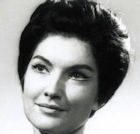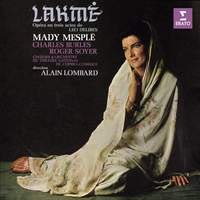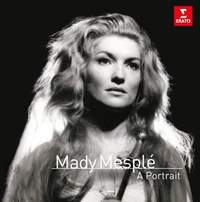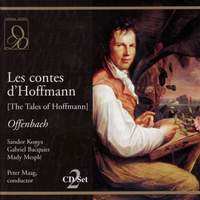Obituary,
Mady Mesplé (1931-2020)
 The French soprano Mady Mesplé, who possessed one of the greatest coloratura voices of the twentieth century, has died aged 89.
The French soprano Mady Mesplé, who possessed one of the greatest coloratura voices of the twentieth century, has died aged 89.
Magdeleine Mesplé was born in Toulouse on 7th March 1931 and studied piano and singing in her home city before moving to Paris to work with Janine Micheau, herself a great exponent of much of the repertoire in which Mesplé would come to excel. In 1953 she made her professional debut in Liège as Delibes’s Lakmé, which became her signature-role: she performed it almost 150 times in the course of her career and recorded it for Alain Lombard in 1971, with Gramophone holding up her ‘twinkling pin-point precision’ in the famous Bell Song as a gold standard twenty-five years later. Mesplé’s compact, supremely agile voice – which extended easily beyond the high Fs required for Mozart’s Queen of the Night – also made her an ideal interpreter of roles including Meyerbeer’s Dinorah, Ambroise Thomas’s Ophélie (Hamlet) and Philine (Mignon), the mechanical doll Olympia in Offenbach’s Les contes d’Hoffmann, Massenet’s Manon, and Le Feu/La Princesse in Ravel’s L’enfant et les sortilèges.
Though French repertoire dominated Mesplé’s career, she also enjoyed considerable success in Italian bel canto roles, including Donizetti’s Lucia di Lammermoor (replacing Joan Sutherland to great acclaim at the Palais Garnier in 1960) and Norina (Don Pasquale), Amina in Bellini’s La sonnambula, and Rossini’s Ninetta (La gazza ladra) and Rosina; she was also a wonderful, sparky Jemmy (one of her few trouser-roles) in the latter's Guillaume Tell, which she recorded opposite the late Gabriel Bacquier for EMI in 1972. It was around this time that she also made numerous benchmark recordings of operetta for the same label, including Offenbach’s La Vie Parisienne, La Grande-Duchesse de Gérolstein and Orphée aux Enfers, and rarities such as Charles Lecocq’s La fille de Madame Angot, Robert Planquette’s Les cloches de Corneville, and Louis Varney’s Les Mousquetaires au couvent.
From the 1960s onwards she worked regularly with contemporary composers, singing in early performances of major works by Hans Werner Henze, Giancarlo Menotti, Betsy Jolas, and Charles Chaynes (whose Quatre Poems de Sappho for soprano and string trio were composed for her in 1968). Her discography also includes numerous beguiling recordings of French song, particularly Satie and Poulenc, and Schoenberg’s Die Jakobsleiter with Pierre Boulez, Ensemble InterContemporain and the BBC Symphony Orchestra.
Following her retirement from opera in 1985, Mesplé taught at the École Normale de Musique de Paris and the Conservatoire de Lyon, gave regular masterclasses and sat on the juries of many international singing competitions; in 2019 she was awarded the Ordre National du Mérite. She died in Toulouse on 30th May.
Mady Mesplé - a selected discography
Mady Mesplé (Lakmé), Danielle Millet (Mallika), Charles Burles (Gérald), Roger Soyer (Nilakantha)
Orchestre et Choeurs du Théâtre National de I'Opéra-Comique, Alain Lombard
Available Formats: MP3, FLAC
Arias from operas by Donizetti, Rossini, Lalo, Delibes, Thomas & Massenet, and operettas by Offenbach, Lecocq, Massé and Messager; songs by Fauré, Gounod, Hahn, Poulenc, Satie, and Ravel.
Available Format: 4 CDs
Sándor Kónya (Hoffmann), Mady Mesplé (Olympia), Radmila Bakocevic (Giulietta), Heather Harper (Antonia), Gabriel Bacquier (Coppélius/Dapertutto/Miracle/Lindorf), Noemi Souza (Nicklaus), Nino Falzetti (Frantz/Andres/Cochenille/Pitichinacchio), Guy Gallardo (Spalanzani)
Teatro Colón, Peter Maag
Available Formats: MP3, FLAC





